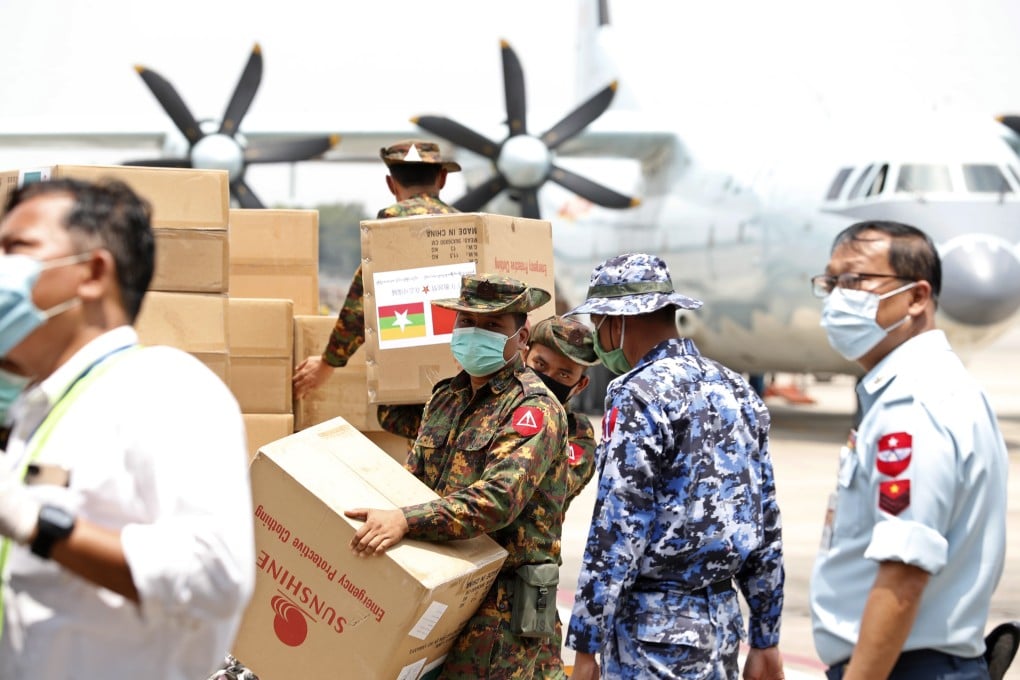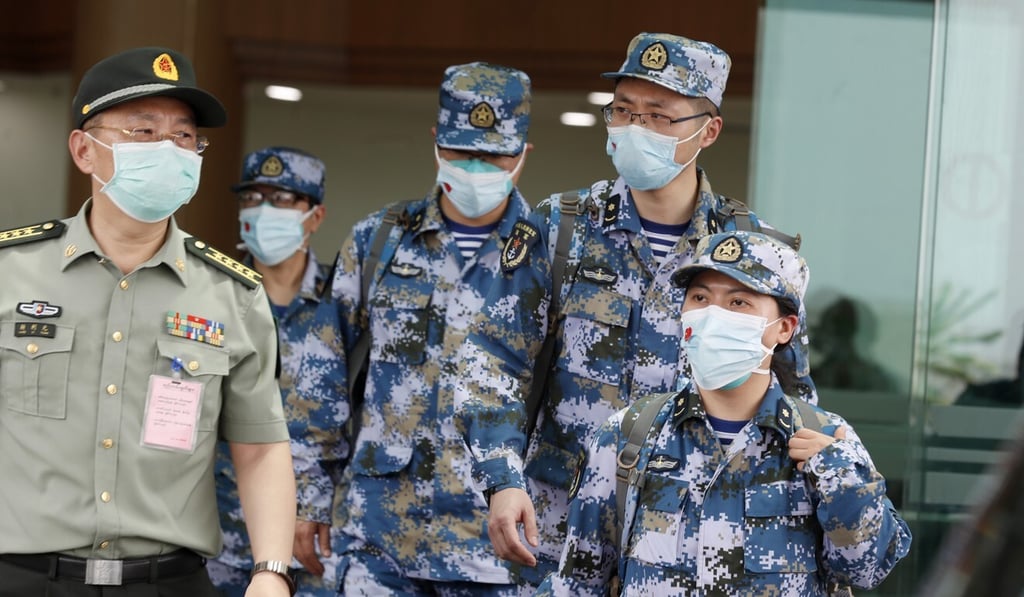Coronavirus response: China’s military may have filled the gap left by the US but it’s only temporary, experts say
- The People’s Liberation Army has dispatched medical teams and vital supplies around the world to help fight Covid-19, but trust issues and a lack of experience are likely to curtail its ambitions to be a global leader, observers say
- PLA’s overseas operations are ‘taking place at a time when suspicions of Chinese activities abroad are already quite high’, expert on Indo-Pacific security affairs says

While America’s absence from the world stage has raised questions about its commitment to global affairs, defence experts doubt whether the medical and logistical support doled out by the PLA – as substantial and welcome as it is – will ever be enough for China to overtake the US in terms of global leadership.
Jeffrey Becker, director of the Indo-Pacific security affairs programme at CNA, a US think tank in Arlington, Virginia, said that while the PLA’s help was appreciated by recipient countries, it was unlikely to offset the criticism directed at China over its role in the global health crisis.
“The PLA’s overseas Covid-19 operations are part of larger efforts to create an image of China as a responsible global actor, shifting the narrative away from its initial mishandling of the crisis,” he said.
Also, despite the PLA’s apparent magnanimity, its activities were consistent with China’s long-term military policy of fostering goodwill with strategically important countries while providing protection for its ever-expanding overseas interests, he said.
